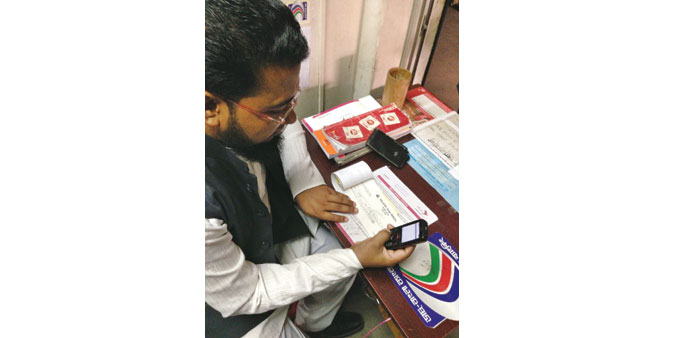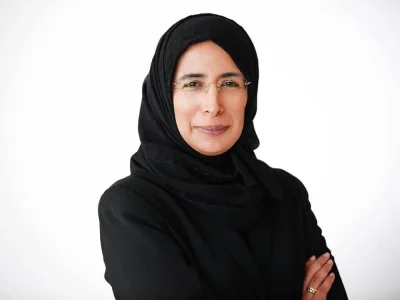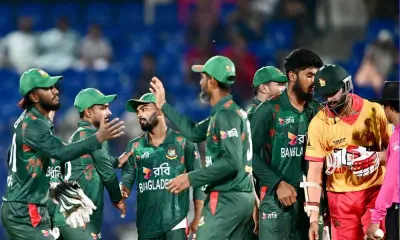Bangladesh, home to the world’s second-largest mobile money company, is moving to consolidate the industry as it expands financial services to the rural poor.
Bloomberg
Dhaka
Bangladesh, home to the world’s second-largest mobile money company, is moving to consolidate the industry as it expands financial services to the rural poor.
The central bank has proposed channelling all mobile transactions through bank-led companies with a minimum capital of 1bn taka ($13mn), said Bangladesh Bank governor Atiur Rahman. This would force smaller providers to merge and link up with banks.
“There are a lot of entrepreneurs who could never be reached by conventional banks,” Rahman said in an interview in Dhaka on Thursday. “It’s a conscious move by the central bank to bring those unserved or underserved into financial flows.” More of Bangladesh’s 157mn people use mobile phones to transfer money than bank accounts. The nation – upgraded this year to the World Bank’s low-middle-income status – has a mobile network that covers 99% of its population, and remittances account for more than 10% of its economy.
The central bank has made it mandatory for all banks to give a minimum of 25% of total loans to agriculture.
Farmers can open accounts with as little as 10 taka ($0.13).
The new companies would need to boost capital by retaining at least 10% of net profits a year, according to the central bank proposal. Telecom companies would be allowed to hold stakes of as much as 30% in them. While their main role would be to provide payment services, they can also accept deposits, insurance premiums and disburse loans.
The central bank will finalise the proposal after receiving comments from various stakeholders. All existing mobile money platforms would need to restructure operations within three years of the proposal being accepted and implemented. While Bangladesh has long enjoyed a history of financial innovation to reach its unbanked population, Rahman has increased the pace of inclusion.
Born to a poor family in 1953, he’d briefly quit school due to lack of funds before graduating from Dhaka University. He then wrote a doctoral thesis titled “Peasants and Classes” at the School of Oriental and African Studies in London.
Since taking office in 2009, the former professor of development economics has made it mandatory for banks to open a rural branch for each new urban one, raising the ratio to 1:1 from 1:5. He also allowed mobile banking in 2011, granting licences to 28 banks. Twenty of them have started operations.
“We have embarked on an era of new central banking which has got a distinct developmental focus,” Rahman said. “That focus is inclusivity and environmental sustainability, which was never reflected in any monetary policy anywhere in the world.” The number of mobile money users rose 1.8% to 27mn in May from the previous month, and mobile cash transactions rose 6.4%, Bangladesh Bank data show.
January-May mobile transactions were worth 590.03bn taka, on pace to overtake last year’s total.
BKash, run by BRAC Bank, has close to 8mn accounts, behind only Vodafone’s M-Pesa in Kenya. Even so, the value of mobile money transactions in Bangladesh was 5.6% of GDP, far lower than Kenya’s 55%. Analysts say the lack of customisable payment platforms and poor user education hamper
penetration.
Part of Rahman’s inclusive effort is to support the farm sector in a country where agriculture accounts for about a fifth of gross domestic product but gets less than 6% of total bank loans.
“Before 2009 in Bangladesh there were only threads of inclusivity and environmental sustainability,” Rahman said. “We have strengthened the focus.”



